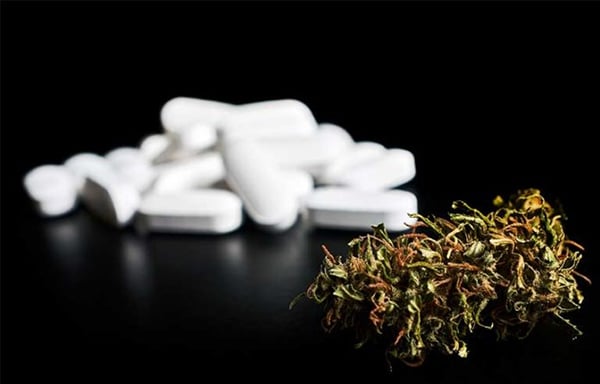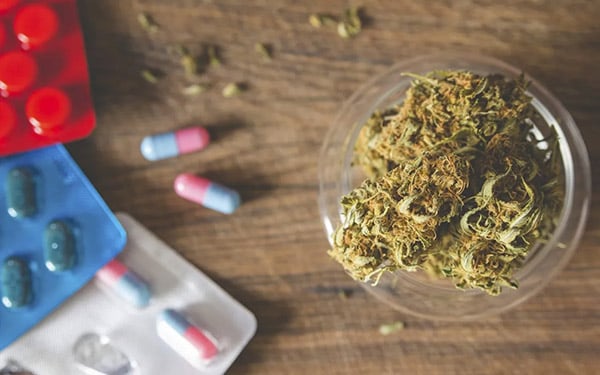A new "comedown drug" may be on the horizon to treat people who get too high.

A new "comedown drug" may be on the horizon to treat people who get too high.

A pharmaceutical company is developing a new drug for people who become so high from smoking marijuana that they seek medical help - and its executives say the results so far are exciting.
Anebulo Pharmaceuticals is developing the first drug of its kind, called ANEB-001, to treat so-called acute cannabinoid intoxication or ACI. That is when a person gets so tall that they feel out of control and sometimes ends up in the emergency room.
In clinical trials, the drug has shown that it can safely counter the effects of problematic high doses of THC with few side effects, company founder Dr. Joseph Lawlor said at a Sept. 26 informational event for media and investors.
A cannabinoid receptor-blocking molecule

ANEB-001 is a small molecule that can block the brain's type 1 cannabinoid receptor (CB1), with which THC binds to produce the psychoactive high.
ACI has appeared on the healthcare industry's radar, as marijuana is medically legal in 39 states and recreationally legal for adults in 19 states.
Anebulo chief executive Simon Allen said patients typically included first-time consumers, people who unwittingly ate THC gummies (sometimes children), and general consumers who took more than their intended dose -- which varies from person to person.
It's now in clinical trials in the Netherlands
The trials were conducted by the Dutch Centre for Human Medicine Research. In Part A of the now-completed test, subjects took 10.5 mg of THC and received either 50 mg or 100 mg of ANEB-001, or a placebo. They then underwent a series of tests that included measuring "body sway" as the subjects closed their eyes for two minutes while standing in place.
In addition to greater alertness, those who received the drug dose also experienced a significant reduction in "feeling high" scores and body sway compared to the placebo group.
For Part B, the researchers flipped the experiment, doubling the dose of THC to 21 milligrams and lowering the dose of the test drug to 10 and 30 milligrams. So far, Cundy said, the results have been equally encouraging. So far, Part B consists of two groups, each containing up to 15 people, and the company plans to recruit at least four more groups before moving to the next phase of the trial.
The next step after the trial: seeking FDA approval
The drug usually reduces the effects of feeling high within an hour. The next phase will be to test ANEB-100 an hour after subjects' ingestion of THC to better simulate real-world conditions. After trials, they will seek FDA approval to distribute the drug to emergency rooms across the United States by 2025.
Anebulo officials say the stakes are high. Emergency rooms are overcrowded and expensive, with ACI treatment in psychiatric wards costing up to $50,000. "That's a lot of money," Allen said. "So we think that eliminating all of these symptoms quickly would not only benefit the patient, but it would also be a huge benefit to the health care system."
Ideas born out of news stories
Lawlor said he got the idea for the drug after reading a medical journal article. The article told about a children's party where some attendees unknowingly ate THC gummies. "I reasoned that if we could block the CB1 receptor, we would then have a drug to treat this THC poisoning," he said. "That's what we built Anebulo on. ANEB-001 is effective, it's specific... And it's quickly absorbed."
ACI is rarely life-threatening, and symptoms usually resolve themselves in a few hours. So is there a real need to develop a drug to treat it? Lawlor likens it to a migraine, and people recover in time -- "But we wouldn't dream of not treating someone who shows up in the emergency room with a migraine. The same is true for marijuana poisoning; The big difference is that there is no approved antidote."
That may soon change.





